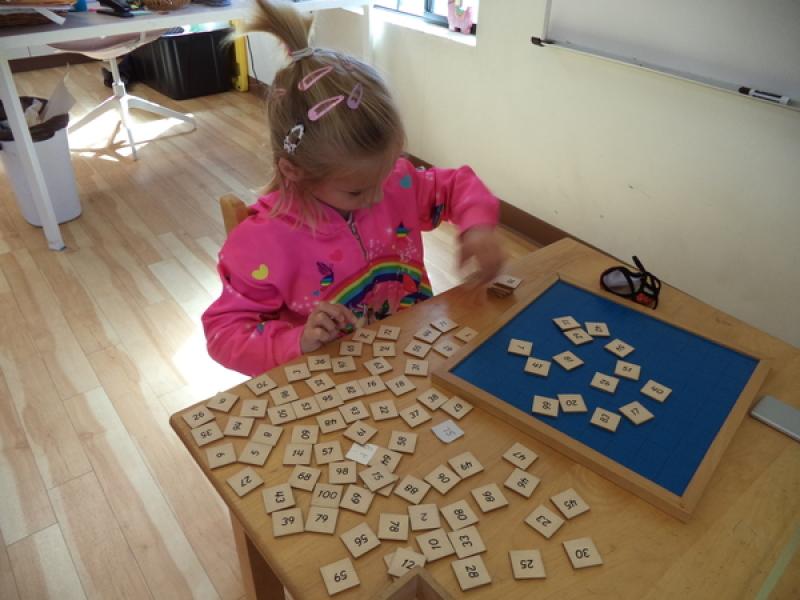Historically, Montessori students do better mastering specific tasks than their counterparts in traditional schools primarily due to what, when, and where preschoolers are taught.
Traditional School Methodology
By the time a five or six-year-old enters a California public Kindergarten school, a teacher can quickly spot who has not attended Toddler and Primary programs. Those first-timers are less fundamentally educated in academic, social, and emotional arenas.
For example, they’ve not undertaken a formalized curriculum that helps them understand common learning: the world around them, above them, below them, and beside them. Many incomers are more isolated and less social than those students who began formal educational learning at 18 to 24 months.
This immediate learning gap is why the State of California administrators want all children to begin formal school by age four. The earlier one starts, the faster he or she learns and moves forward.
Montessori School Methodology
By the start of Kindergarten, a Montessori teacher has already imparted three years of fundamental learning by focusing on:
- An individualized, ‘learn at your speed and follow your own passion’ approach
- An age-range grouping of younger and older children learning together rather than
- a calendar-year clump of kids who are all the same age and possess the same learning levels
- Treating children with respect and as adults rather than imposing ‘outside the lines’
- disciplines and tactics and,
- Degreed, experienced teachers who teach the same children throughout the preschool years and know their strengths and weaknesses.
Advantages of Early Formalized Education
At Lifetime Montessori School, centrally located in the San Diego suburb of Santaluz, children as young as 18 months old start school in our Toddler program. Some benefits include:
Low Student/Teacher Ratios
At a private school, your child gets more teacher time because there are fewer students per teacher. More personal student/teacher interactions help their sensorial, behavioral, verbal, numerical, and scientific skill sets.
Peer and Age-Group Learning Moves Kids Forward
Since children can enter Montessori Toddler programs at 18 months, they start potty learning first. Peer emulation--where the youngest learn from the oldest around them–is why. Diapers are replaced by pull-ups and then underpants because each child learns to become responsible for him/herself and others.
Bilingualism Immersion Starts Early
Many Montessori preschools begin immediate English and Spanish dual language immersion. Kids absorb quickly and learning a second language is easiest when one is young.
As a result, most children graduating from Montessori Kindergarten should speak both languages fluently—because they’ve effortlessly learned both together. Also, they’ve developed a world view about other cultures, peoples, geography, and products.
Summary
Consider the value of how and why Montessori students do better than traditional students upon entering Kindergarten. By starting a child’s excitement for learning and independence at 18-months old, your children will start with the Montessori Edge—an early learning advantage that will serve them–and you–well as they enter their elementary school years.


